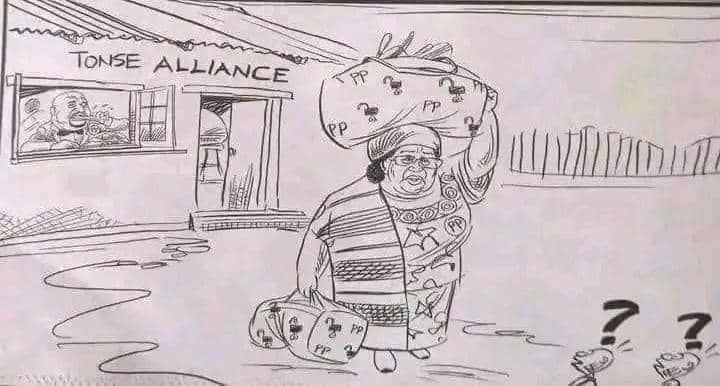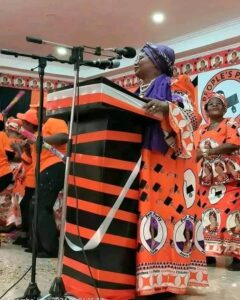By Burnett Munthali
During the recent People’s Party (PP) convention, a powerful proverb was introduced, stating: “Munthu osaona sayambana ndi yemwe akumuyendetsa chifukwa sakafika komwe akupita osaonayo, owona uja akabwelera.” This translates to “A blind person does not quarrel with the one guiding them because they will not reach their destination without the guide. But if the guide turns back, so does the blind person.”
This proverb has a deep and symbolic meaning in the context of Malawi’s political journey. It reflects the complex relationships between politicians, political parties, and alliances that have shaped the country since its transition to multiparty democracy in 1994. Below is a detailed analysis of the proverb and its relevance to Malawi’s political history and current situation.

1) Dependence on political alliances
At the heart of the proverb is the idea of dependency. In Malawi’s political environment, many leaders have relied heavily on alliances with other parties to gain or retain power. The “blind person” in this context can represent a politician or a political party that lacks an independent vision or the strength to lead on its own. These figures often need the support of larger or more influential parties to navigate the political landscape.
In the proverb, the blind person who quarrels with their guide represents a politician who challenges or overestimates their own abilities despite being reliant on others to succeed. In Malawi, several political figures have risen to power not through their own strength, but by forming alliances. However, once in power, some of these individuals have quarreled with their guiding partners, believing they could now chart their own course independently. The outcome, as the proverb suggests, is that without the guide, they are likely to lose their way.
2) Malawi’s political journey since 1994
The reference to “starting in 1994 and still being blind in 2024” in the analysis points to the fact that many politicians have been in the system for decades, but they have not yet found a clear and independent path for themselves or the country. Malawi’s return to multiparty democracy in 1994 was a significant turning point, but since then, many political figures have struggled to establish lasting leadership. They have often relied on coalitions or switched parties to remain relevant.
This proverb could be highlighting the fact that Malawi’s political landscape has seen little progress in terms of new, visionary leadership. Instead, old players remain, still dependent on external forces to maintain power. The journey, despite spanning 30 years, appears to be going in circles, with no clear destination in sight.
3) Critique of leadership without vision
The proverb also offers a critique of leadership that lacks a clear vision. In Malawi, leaders who rely solely on the support of other parties or alliances, without cultivating their own political identity or policies, are like the “blind person” in the proverb. Such leadership can only go as far as the guide takes them. When the guide (a more powerful party or alliance) withdraws support, the leader is left stranded, unable to move forward.
This could be seen as a warning to political leaders in Malawi to develop their own clear visions for the country rather than relying solely on political deals or alliances. The proverb suggests that true leadership requires the ability to see where you are going, not just being led by others.
4) Implications for current political dynamics
In today’s political context, the proverb may be particularly relevant to some of the political figures or parties that have been propped up by alliances or coalition agreements. These parties or leaders might be overestimating their strength and quarreling with the very alliances that have kept them afloat. The proverb’s message seems to be clear: without the support of others, and without a clear vision, these political actors risk being left behind, just as the blind person is left stranded when their guide turns back.
5) The call for political independence and vision
Ultimately, the proverb calls for political independence and visionary leadership. Malawi’s political future depends on leaders who can chart their own course and not just follow others. Political parties and leaders must develop clear ideologies, policies, and strategies that resonate with the people. Without this, they risk being seen as blind followers, dependent on the shifting winds of political alliances rather than capable of leading the nation forward.
Conclusion
The proverb shared at the People’s Party convention offers a profound reflection on the current state of Malawian politics. It highlights the dangers of over-reliance on political alliances and the importance of visionary leadership. As the country looks toward the future, political figures must heed this wisdom, ensuring they are not merely being led, but actively leading the country toward progress. Leaders need to open their eyes, find their own path, and stop relying on others to show them the way.



